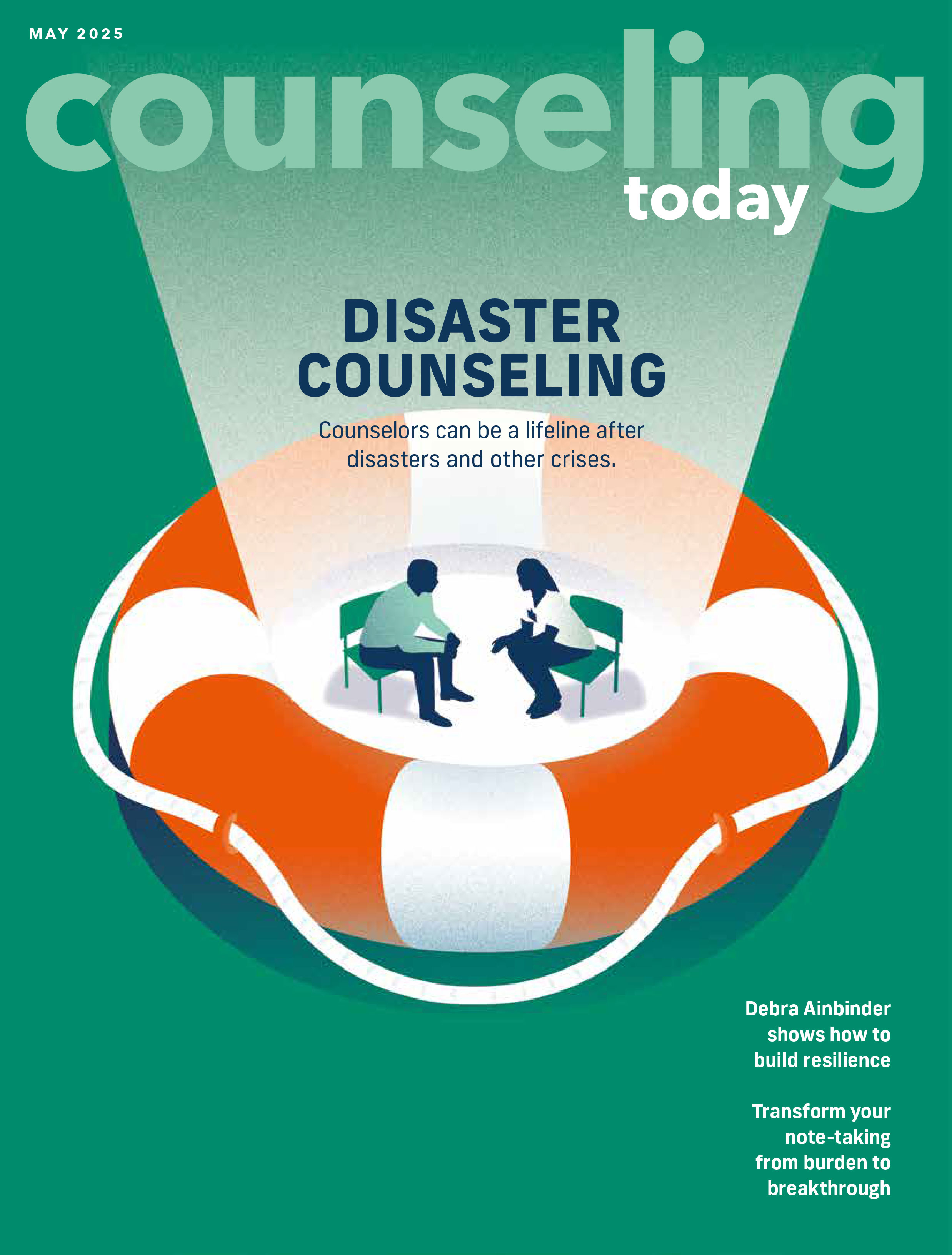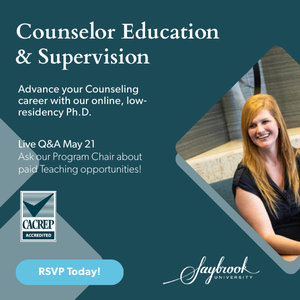Explore Counseling Today Articles
How to Find the Right Career Path
Every issue we ask a counseling student or new professional to pose a career-related question to another counseling professional who has experience in that topic. This month, Samantha Conner, MEd, a school counselor at Baldwin Elementary School in Manassas, Virginia, asks Sharon Givens, PhD, LPC, LCMHC, a private practice counselor and owner of Visions Counseling and Career Center LLC, in Columbia, South Carolina, for advice on landing in the right counseling niche.
Question:
How do you recommend a new counseling professional go about exploring different counseling paths and finding their niche?
Answer:
I would recommend that you explore different paths and identify your niche by taking a proactive and reflective approach. Here are some strategies and resources:
Self-assessment. Begin by reflecting on your passions, strengths and areas of curiosity. Ask yourself:
- What made me pursue the counseling profession?
- What populations am I most passionate about serving (children, adolescents, adults, couples or families)?
- What challenges or issues resonate with me (trauma, anxiety, career transitions, addiction)?
- What settings align with my values (schools, private practice, hospitals or community agencies)?
- What issues do I want to advocate for?
- What specific experiences resonate with me from my practicum or internship training?
Diverse experiences. Seek out volunteer work. Look to partner with organizations that offer services in areas you are curious about. Reach out to experienced counselors and ask to shadow them. You can learn a lot about their daily responsibilities and approaches by observing them and asking questions. I also recommend you join professional groups on social media platforms such as LinkedIn and Facebook so you can connect with other professionals in the counseling field. You can engage with peers, mentors and leaders in the industry who can provide guidance, while also staying informed about the latest trends, research and best practices in the field. This is also a good way to gain access to resources such as articles, webinars, training opportunities, conferences, certifications and workshops.
Mentoring and networking. Social media can also help you connect and build relationships, but look for other ways to connect and expand your professional network. Attend ACA conferences and events and join niche-specific groups such as the Association for Child and Adolescent Counseling, International Family Therapy Association or National Career Development Association. Seek out mentors in areas you find intriguing. A mentor can provide valuable insights and guidance as you navigate your career.
Continuing education. Seek out and explore workshops and certifications. For example, if you are interested in trauma, consider training in eye movement desensitization and reprocessing or in trauma-informed care training. For career counseling, explore certifications such as the Facilitating Career Development course from the National Career Development Association.
Supervision. Supervisors are excellent resources for exploring paths and reflecting on your clinical interests. They can help identify patterns in your preferences and provide feedback to refine your niche.
Research. Read books, listen to podcasts and explore webinars about different specialties. A couple of podcasts I recommend are The Thoughtful Counselor and Psychologists Off the Clock.
Here are a few books that might be helpful:
- The Gift of Therapy: An Open Letter to a New Generation of Therapists and Their Patients by Irvin Yalom
- Career Counseling: A Holistic Approach by Vernon G. Zunker
- Daring Greatly: How the Courage to Be Vulnerable Transforms the Way We Live, Love, Parent and Lead by Brené Brown
- What Color Is Your Parachute?: Your Guide to a Lifetime of Meaningful Work and Career Success by Richard N. Bolles
Throughout this process, allow for flexibility. Finding your niche is an evolving process. You might start in one area and transition to another as your interests and experiences grow. And remember that exploring your counseling path is as much about finding your professional fit as it is about maintaining well-being. Prioritize activities and practices that energize and ground you.
By following these steps and staying open to new experiences, you can gradually uncover the areas that align most with your values and skills, creating a fulfilling and impactful career path.
- Career Development
- Professional Counseling
- New Professionals
- Students
Search CT Articles
Filter CT Articles
Current Issue
Sign Up for Updates
Keep up to date on the latest in counseling practice. Sign up to receive email updates from Counseling Today.



